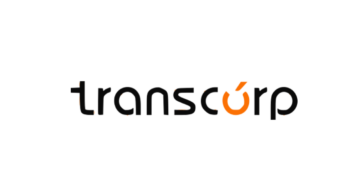A foremost Shipowner, Tunji Brown, has called for the removal of the waiver clause and replaced it with a right of first refusal provision to ensure local Shipowners have a fair opportunity to compete for contracts.
Speaking to LEADERSHIP, the former secretary general and member of the Board of Nigerian Shipowners Association (NISA), expressed concern over the law’s failure to provide Indigenous companies with the essential financial support necessary for effective participation in Nigeria’s maritime trade.
Brown noted that changing the waiver clause to the right of first refusal provision would provide Indigenous companies with a significant advantage during bidding processes.
According to Brown, the disbursement of the Cabotage Vessel Financing Fund (CVFF) presents a pivotal opportunity to fortify the capacity of Indigenous shipowners, significantly elevate Nigeria’s Gross Domestic Product (GDP), and create millions of jobs for citizens across the country.
“The law has failed to provide Indigenous companies with the essential financial support necessary for effective participation in Nigeria’s maritime trade. Also, the inclusion of a waiver clause has been detrimental to the objective of empowering Indigenous businesses,” he said.
Brown argued that the justifications for maintaining this waiver clause no longer apply, making its removal imperative.
“To bolster Indigenous participation, the National Assembly should replace the waiver clause with a right of first refusal provision. This change would provide Indigenous companies with a significant advantage during bidding processes and ensure that local businesses have a fair opportunity to compete for contracts,” he argued.
He stated that the waiver clause should be expunged because Cabotage is fundamentally a home trade issue, not a foreign policy matter. We have a wealth of qualified Nigerians ready to manage this business. Furthermore, Mr Brown criticised the current 2% revenue NIMASA collects from every vessel docking in Nigeria, emphasising the necessity for legislative action to increase funding to enhance the development of the Cabotage Vessel Financing Fund.
Another barrier he identified is the lack of collaboration among Indigenous shipowners. Their reluctance to unite during bidding processes has left them vulnerable to competition from international firms. The growing number of small vessel-owning companies has also hindered Nigerians from securing contracts in the upstream oil sector. However, the recent initiative by the Nigeria Shipowners Association to establish NISA Ocean Transport Limited aims to consolidate Indigenous shipowners, positioning them to compete effectively against foreign entities for Cabotage opportunities.
Brown lamented that the cabotage initiative has, to date, been a mere facade, mainly due to collusion between certain local operators and foreign vessel owners. This collision has allowed foreign interests to continue dominating Nigeria’s maritime trade by temporarily importing marine assets under the waiver clause.
He emphasised the need for greater synergy among government agencies such as NIMASA, customs, immigration, and relevant ministries to achieve the goals set forth by the Cabotage Act. Is the Ministry of Marine and Blue Economy coordinating with Petroleum Resources? He queried, stressing that a collaborative approach is essential for enhancing Indigenous capacity.
Brown pointed to a significant gap between market demand and local supply, identifying shipbuilding and ship repair yards as critical areas where Nigerians have yet to establish a foundation for Cabotage’s success.
Currently, marine assets operating in Nigeria are valued at over USD 180 billion, with Nigerians owning less than 10 per cent of these assets. Most vessels in the country operate under temporary importation agreements, providing little direct economic benefit. These vessels, owned by foreign companies, are operated by foreign crews who enter Nigeria every three months on temporary work permits, bypassing local taxation (PAYEE) and avoiding import duties.
To rectify this situation, Brown underscored that once the waiver clause is replaced with the right of first refusal, the balance of marine asset ownership will shift from foreign operators to Indigenous shipowners. He clarified that Nigerian shipowners cannot advance to the commercial bidding stage without owning marine assets to present during technical bids.
If harnessed properly, Nigeria’s extensive 2,000 kilometres of inland waterways could become a primary conduit for trade within and across Africa. Presently, less than 10% of these waterways are navigable. Brown stressed the importance of the Ministry of Marine and Blue Economy in opening up these routes. By doing so, Nigerian shipowners could transport containers, bulk cargo, and agricultural produce by sea, circumventing the dangers of road transport and enhancing the overall quality of life.
Brown also advocated for establishing a dedicated inspectorate unit within NIMASA to monitor compliance levels and vessel conditions, arguing that enforcement of Cabotage regulations cannot rely solely on administrative measures.





